The demonstration outside the Federal Criminal Investigation Department in January 1983; in the foreground Ranko Brantner, Anton Franz, Romani Rose. photo: Documentation and Cultural Centre of German Sinti and Roma
Protests against special registration by the police
The failure of the German population in coming to terms with the genocide perpetrated against the Sinti and Roma had consequences: former Nazi perpetrators – particularly in police service – were left alone and were not prosecuted. In that area, racism against Sinti and Roma was still omnipresent in Germany even decades after the end of the war. The special registration of Sinti and Roma already established during the German Empire period was continued after 1945 by “Landfahrerstellen” (traveller agencies) in the newly established regional criminal investigation departments. As late as the end of the 1960s, the Federal Criminal Investigation Department published Guidelines for detectives in which the authors, using the Nazi jargon, justified the continued special registration of Sinti and Roma. Police newspapers, information on wanted or missing persons and press releases were characterised by antigypsyist prejudice.
In June 1982, the German Conference of Interior Ministers resolved to continue with the special registration of the minority in criminal investigation departments, using the abbreviation “ZN” (which stands for “Zigeunername”, or “gypsy name”). Consequently, Sinti and Roma conducted a rally outside the Federal Criminal Investigation Department in January 1983 on the day of the 50th anniversary of the Nazi seizure of power. 250 people from all over Germany participated in the demonstration, among them concentration camp survivors. In subsequent discussions, the Interior Minister and the Federal Criminal Investigation Department promised the immediate removal of the “ZN” special registration. However, the police authorities then dodged this commitment by renaming the “ZN” data field as “HWAO”, which stands for “Häufig Wechselnder Aufenthaltsort” (frequently changing place of residence). Even today, instances of such special registration by police authorities continue.
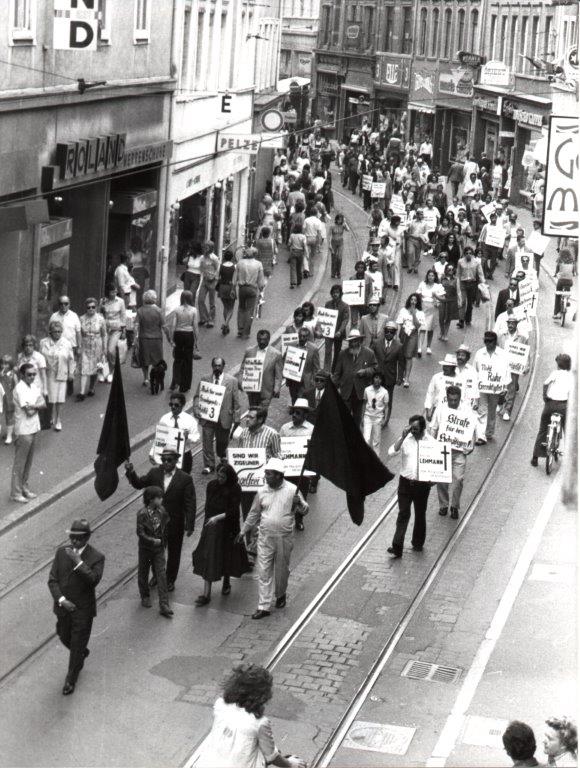
The early days of civil rights work of German Sinti and Roma
Exhibition “The long path to recognition of the Roma and Sinti Holocaust”
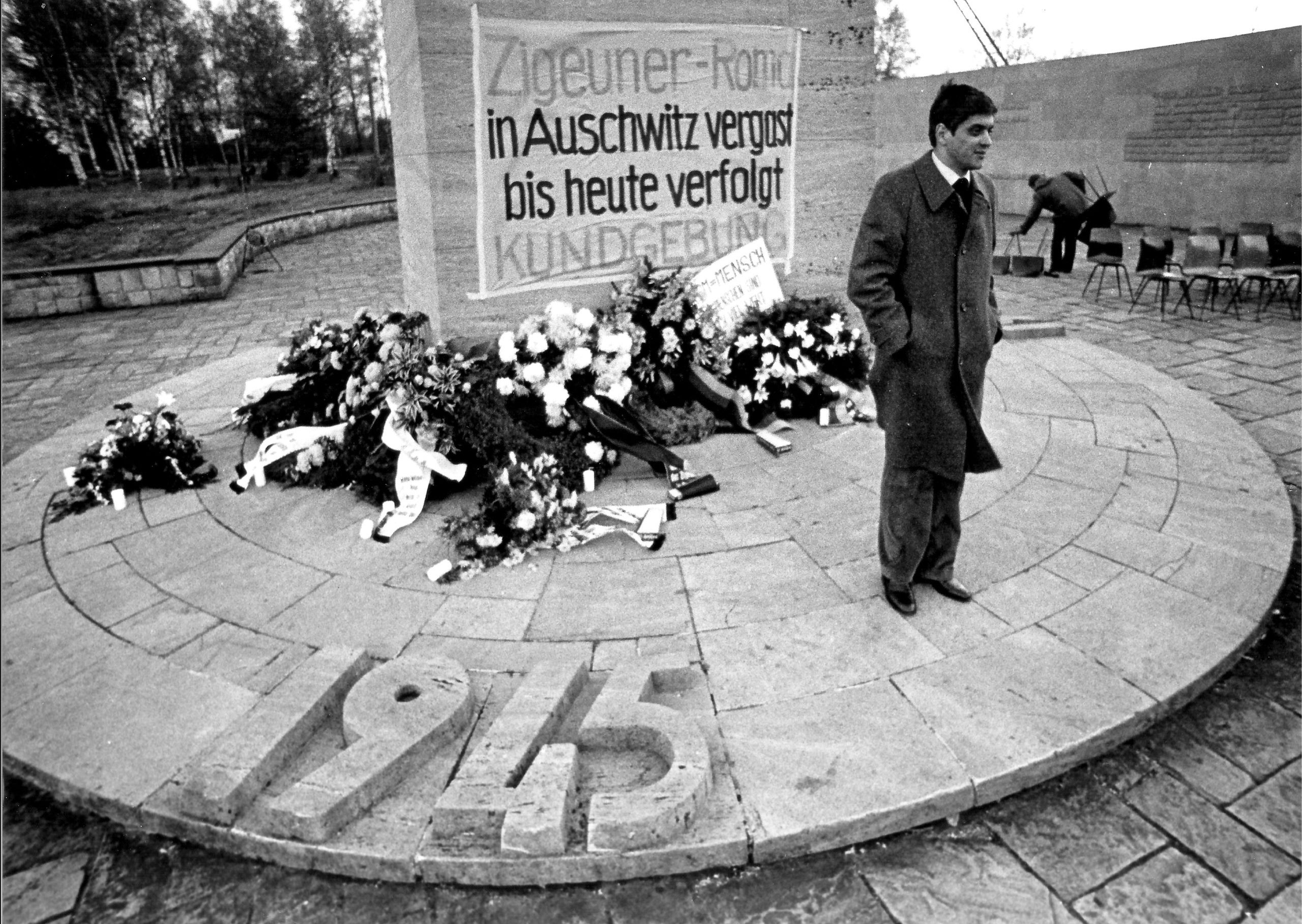
First public civil rights campaign against racism
Exhibition “The long path to recognition of the Roma and Sinti Holocaust”
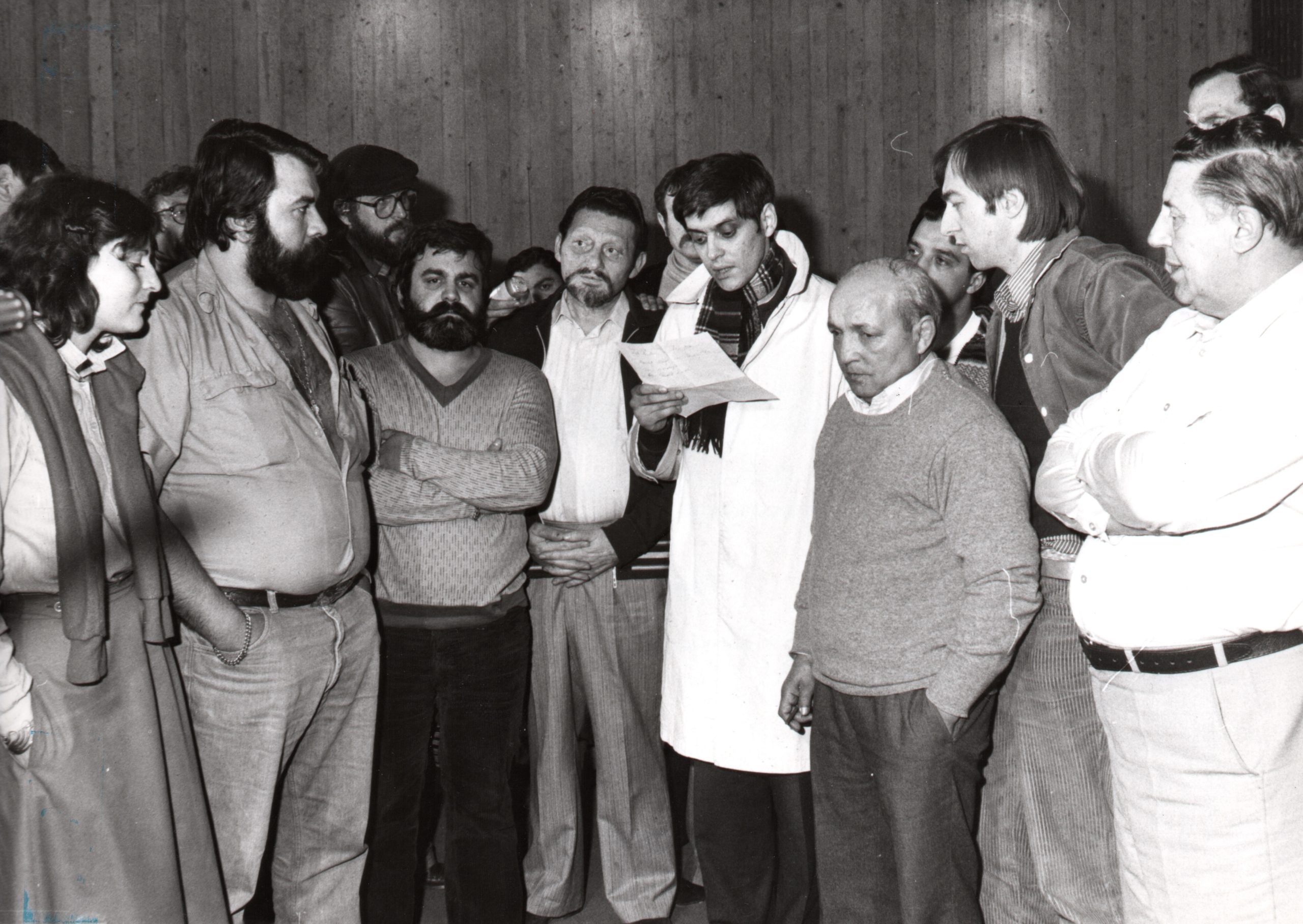
The hunger strike at the former concentration camp in Dachau
Exhibition “The long path to recognition of the Roma and Sinti Holocaust”
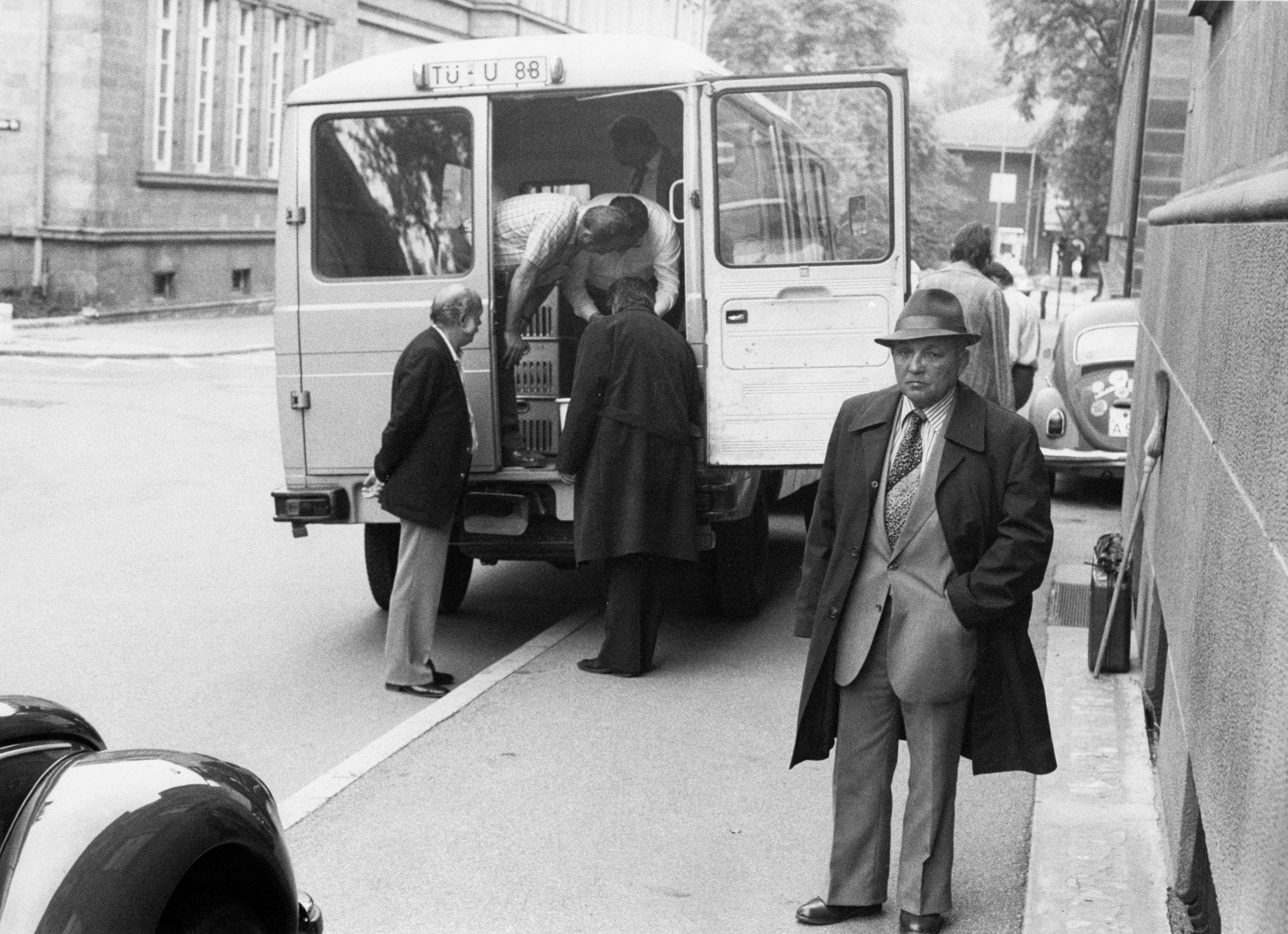
The search for the Nazi race files
Exhibition “The long path to recognition of the Roma and Sinti Holocaust”
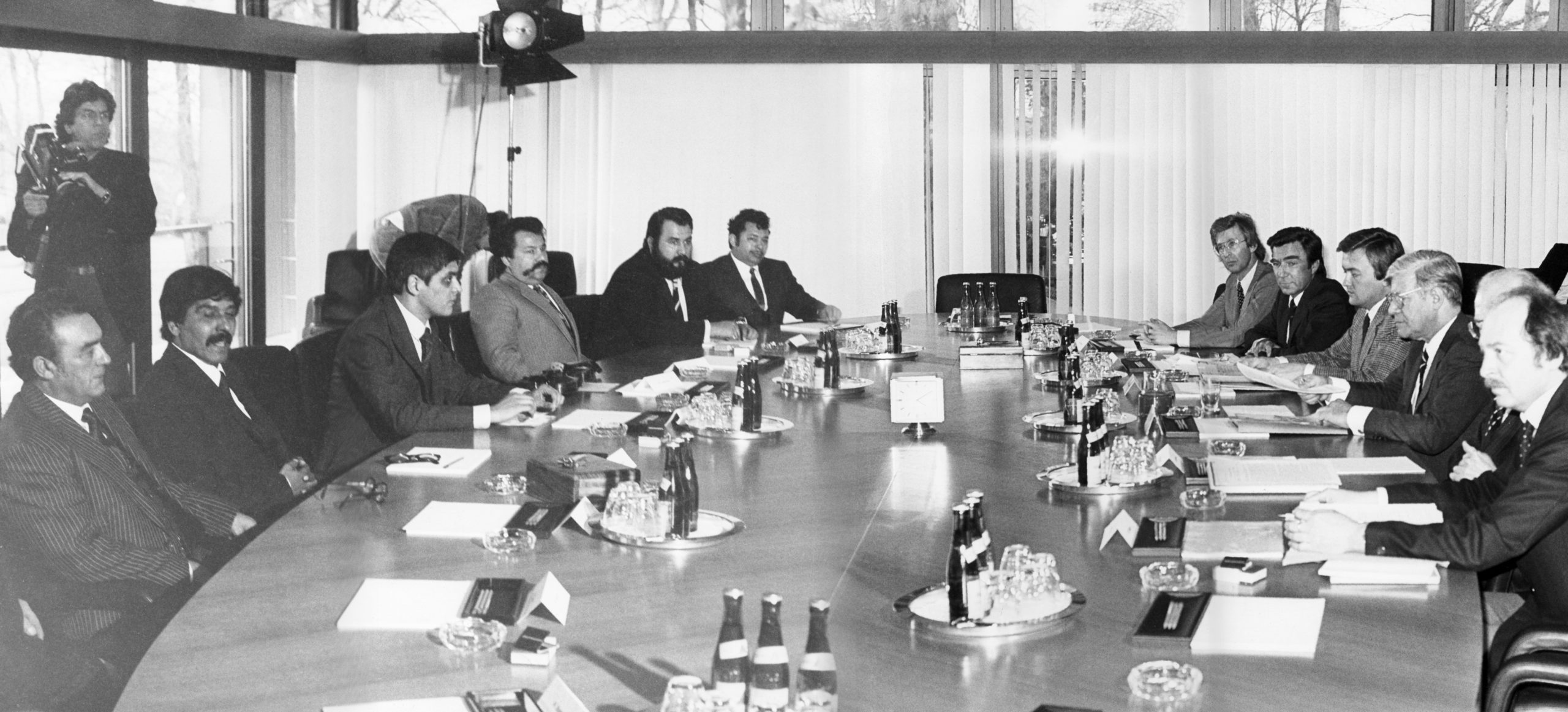
The recognition of the Nazi genocide of the Sinti and Roma
Exhibition “The long path to recognition of the Roma and Sinti Holocaust”
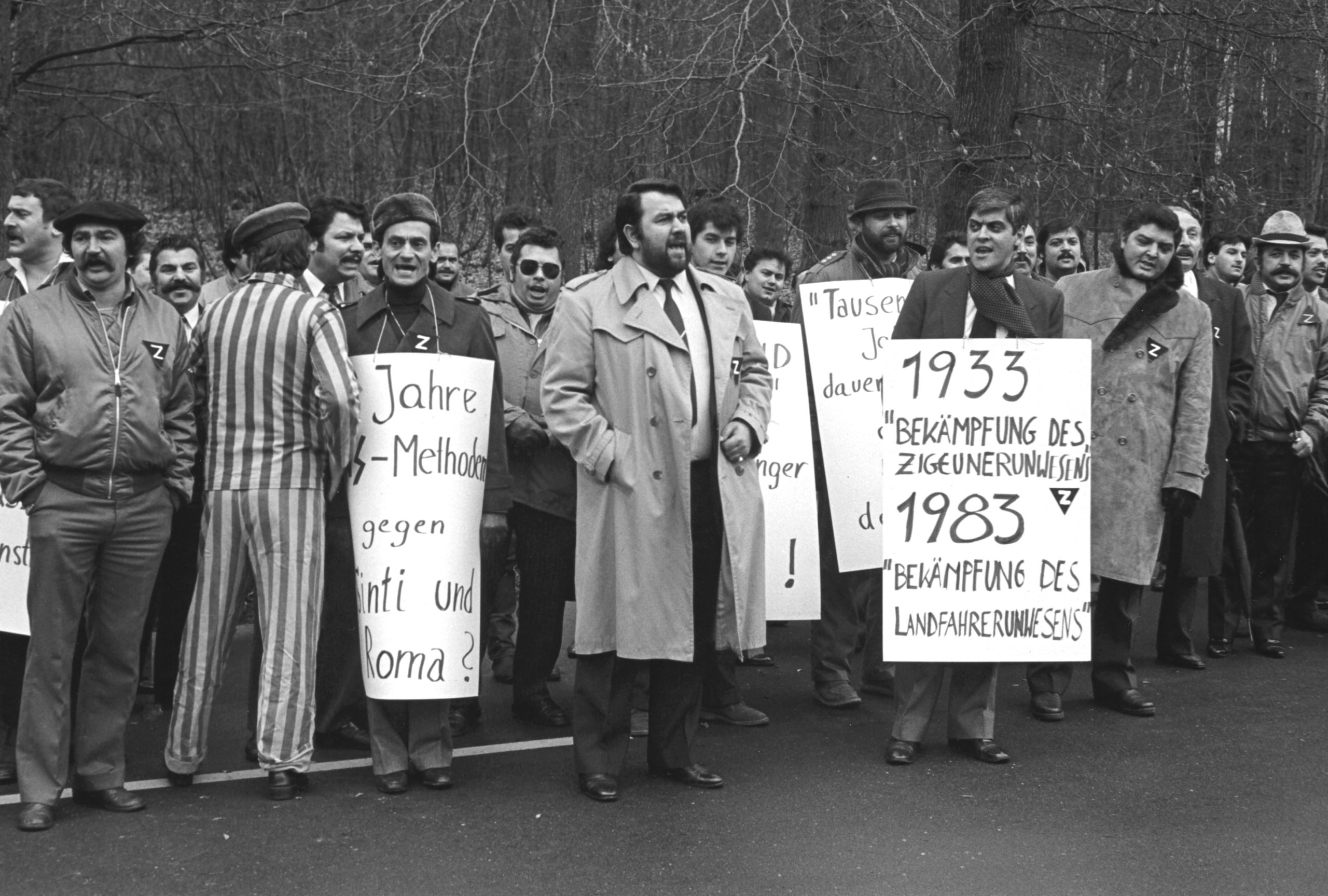
Protests against special registration by the police
Exhibition “The long path to recognition of the Roma and Sinti Holocaust”
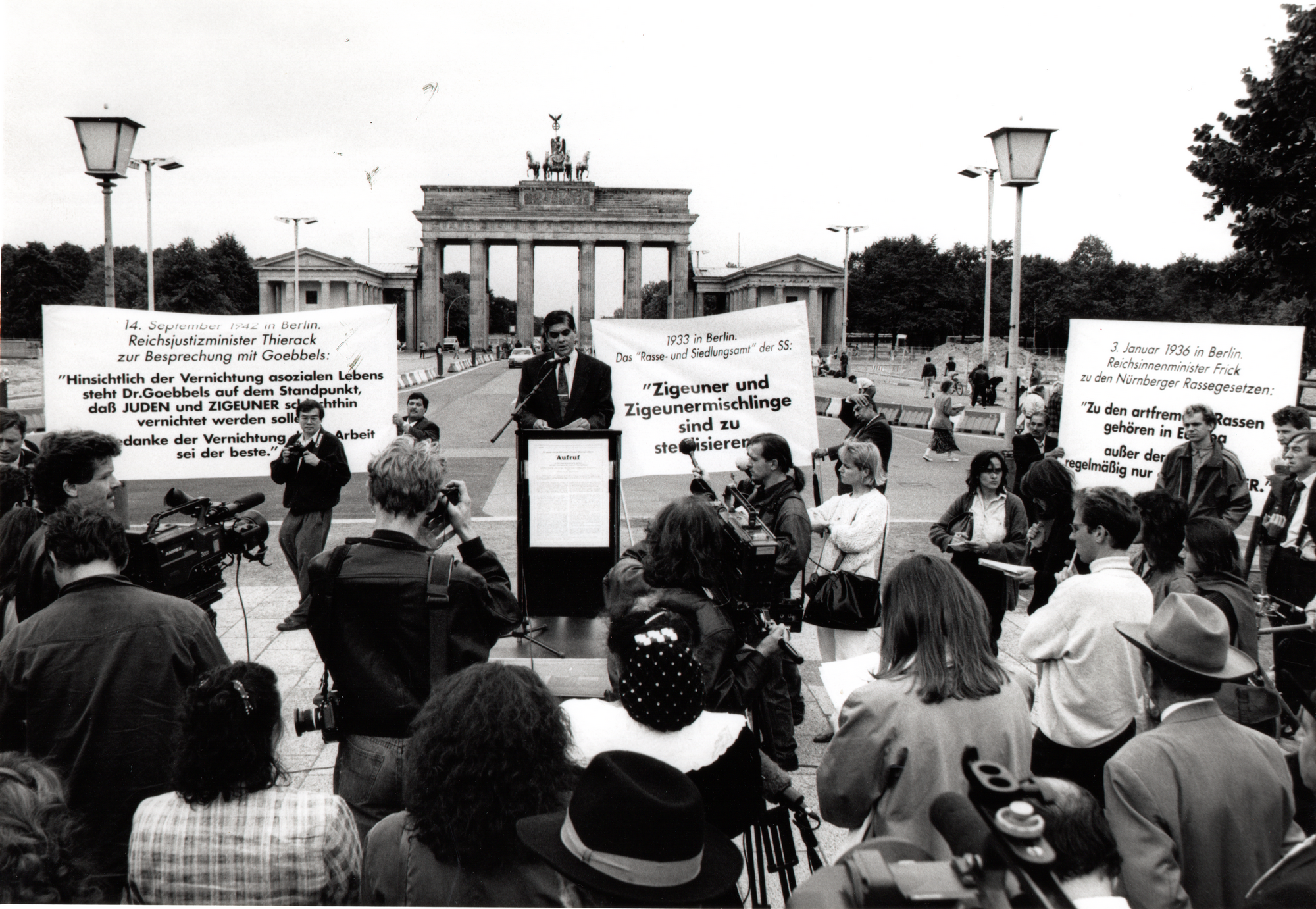
No appropriate compensation for Sinti and Roma persecuted by the Nazi regime
Exhibition “The long path to recognition of the Roma and Sinti Holocaust”
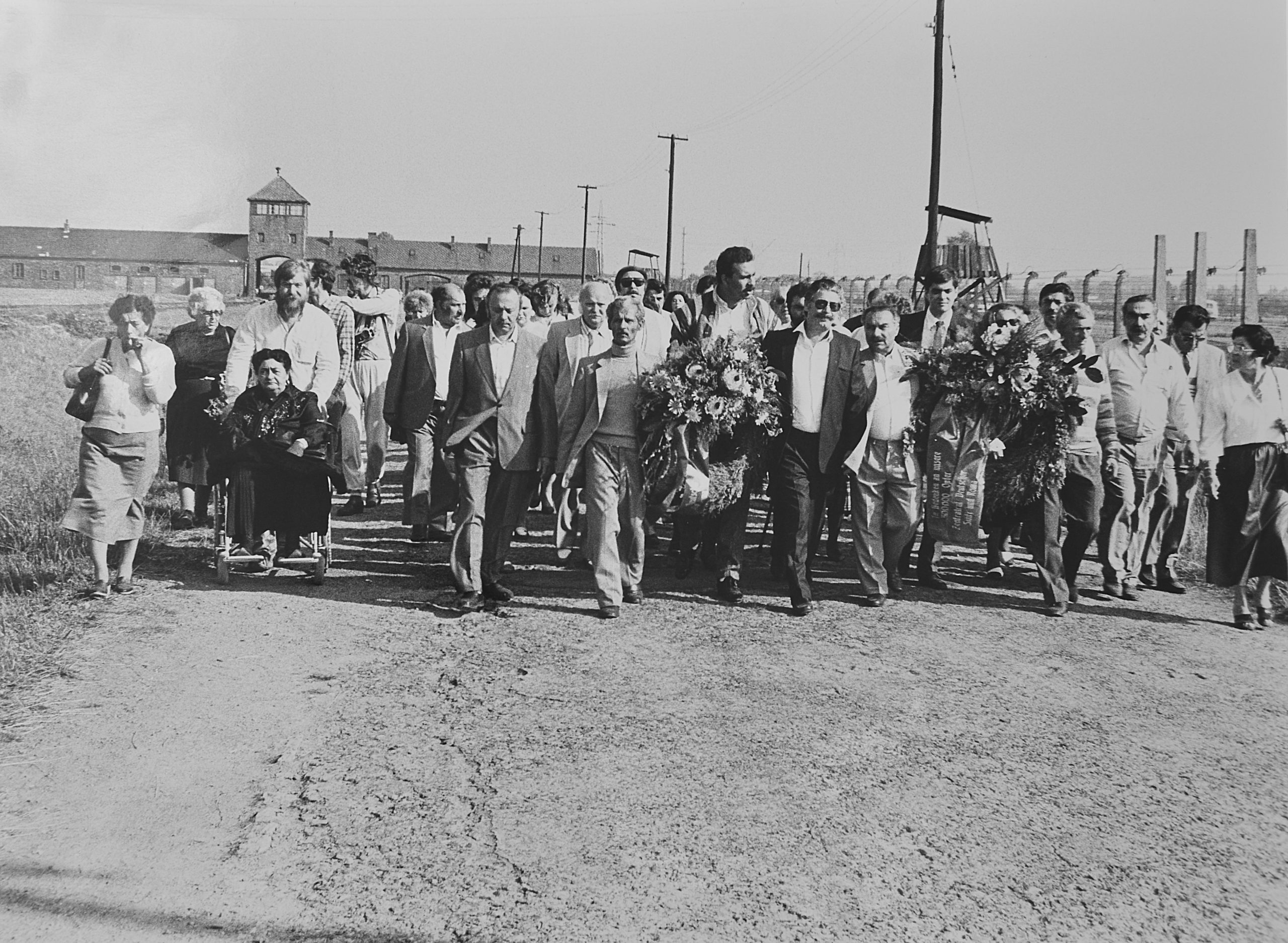
Remembrance in Auschwitz
Exhibition “The long path to recognition of the Roma and Sinti Holocaust”

The world’s first permanent exhibition on the Nazi genocide of the Sinti and Roma
Exhibition “The long path to recognition of the Roma and Sinti Holocaust”
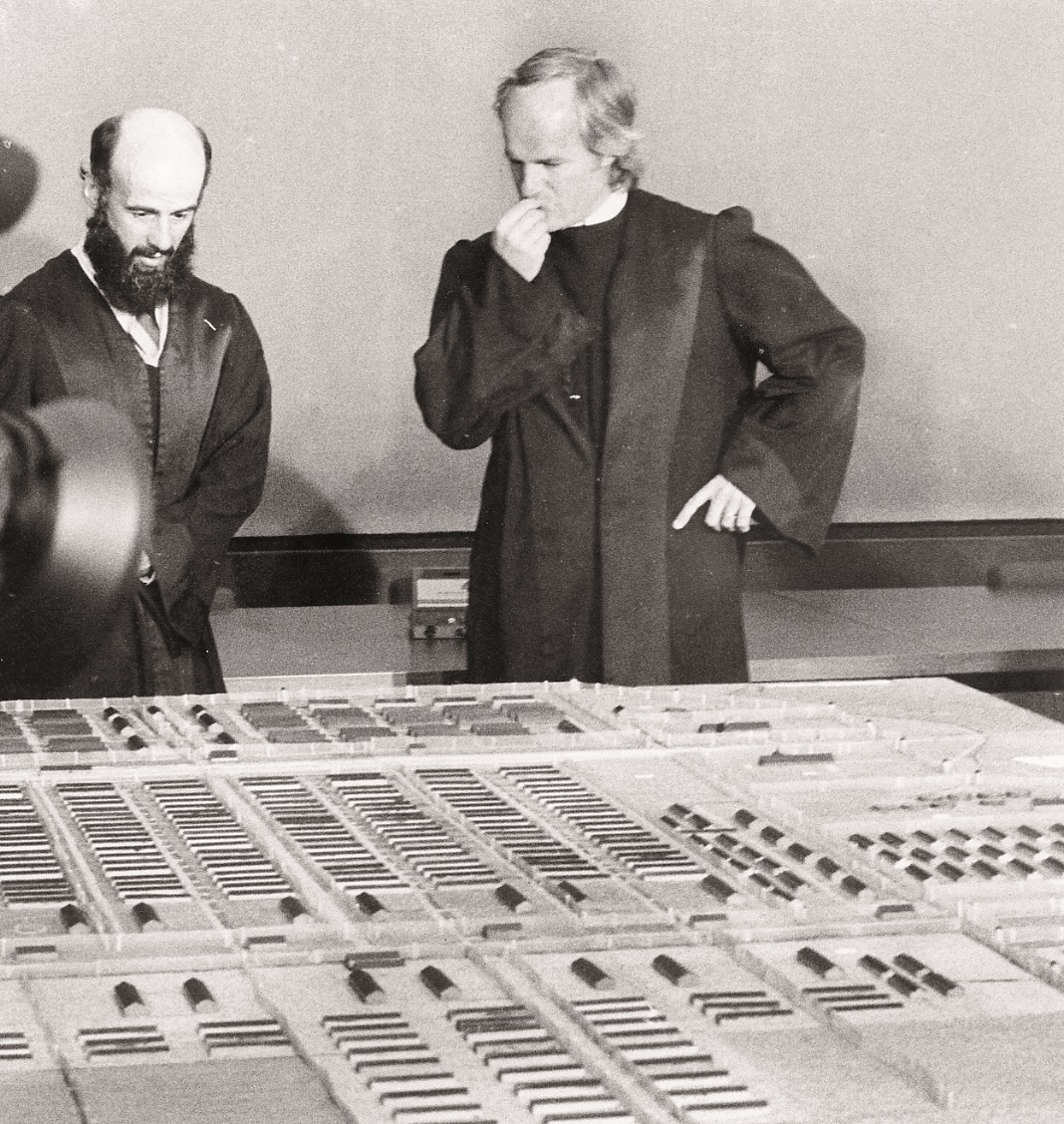
Clemency for the murderers – the Judiciary reviews Nazi crimes
Exhibition “The long path to recognition of the Roma and Sinti Holocaust”










